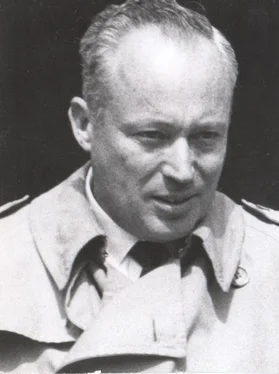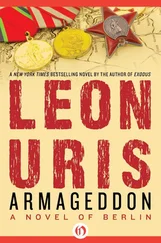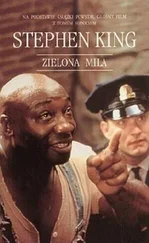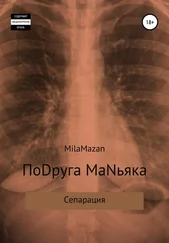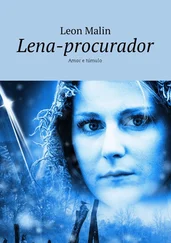He looked into a blinding light.
“Andrei Androfski?”
“Is that you, Moritz?”
“How in the hell did you figure out where this bunker was?”
“We added two and two. Put that goddamned gun away and take the light out of my eyes.”
“Don’t rush me into any decisions. I’m not sure whether I have to kill you or not.” He shifted the light toward one of the cells. “Step into my office. What I’m holding on you, for your information, is a shotgun.”
Moritz lit a lantern and settled in back of his desk. He had a grizzly beard and an anemic color. Much of his chubbiness had shrunk away. Underground living had been hard on him. Moritz kept the shotgun leveled at Andrei’s chest Andrei was too busy being awed by the office. In addition to electrical wiring, there was a phone on the desk and a low-wattage radio transmitter.
“What a setup.”
Moritz shrugged modestly at the compliment “We tried to give our customers good service. Only trouble is that we’ve got no more customers. We got no one. Most my boys were grabbed on a haul. Just me and my wife Sheina and a few others. You’ve met Sheina? She’s asleep in the other room. She sleeps through anything, that woman. Even your banging holes into my bunker. She’s sick. She needs a doctor. Change of life.”
“How in hell do you run the lights—the radio?”
“Generator, what else? Used to be able to send messages to my contacts on the Aryan side. Simple code.”
Telephone?”
“One of my boys worked for the phone company. There’s a million ways to screw the phone company. We tied in on a Ukrainian line from the guards at the Brushmaker’s and we speak Yiddish. They’ve never been able to figure it. No, Andrei. I’m sorry you had to find this place because I’ve always held you in high esteem. You were a very smart man to locate my bunker, but naturally I’ve got to kill you.”
“Not so fast, Moritz. Obviously I wouldn’t pull a move like this without a cover. You’ve heard of Joint Jewish Forces?”
Moritz screwed up his face. He suspected he was about to be taken. “I still get around.”
“They know I’m here and what I’m looking for.”
“Oh crap!” Moritz the Nasher said. He lay the shotgun on the desk in disgust. “Minute I saw you barreling through the sewer into the bunker I said to myself that this bastard is too smart to come in exposed. Now you talk to Alexander Brandel. He’ll tell you I’ve been right down the line with his Orphans setup. I always did business on the square with him.”
“Moritz, for God’s sake, stop apologizing. Do you hear me pushing you around?”
Moritz the Nasher was hungry. He opened the top desk drawer and took out a packet of German chocolate, unwrapped it, nibbled, and decried the lack of fresh fruit. “You want my bunker, no doubt.”
“No doubt.”
“And seven hundred thousand zlotys’ worth of food.”
“I feel bad, Moritz—believe me.”
“What a kick in the ass life is. If one thief doesn’t get you, another will,” Moritz opined.
Andrei sympathized with him. Moritz the Nasher was a gambler, a smuggler, a man who existed by wit. But he was also a supreme realist. He knew that he had been caught flat. At least Andrei Androfski and the Joint Forces held him no malice. Maybe he was lucky, after all. Had the Germans or the Militia found him first ... curtains ... Umschlagplatz. He had hoped that he and his wife Sheina could ride the war out in Mila 18. They had enough supplies and medicine to see through a year or two without ever coming up. But ... what kind of a life was it for a man? Never to see the sun. Nobody to play cards with. Candy running out. Always in fear that the next minute or the next or the next those goddamn German dogs would sniff him out.
“Let me ask you something, Androfski,” Moritz asked. “This here Joint Forces—you the ones who blasted the SS men at Zamenhof and Niska?”
Andrei nodded.
“You the ones who fixed up Warsinski?”
Andrei nodded again.
“You guys really mean business?”
Andrei nodded for the third time.
“Let me tell you something. You work, you live, you do your best, but you never quite get onto the idea of the way they’re kicking you around. In the last week—since the ambush—for the first time in my life I’m proud to be a Jew.”
“That’s the way we all want to go out.”
Moritz shrugged. “So, maybe I’m glad you found me first. Obviously, you realize you have me over a barrel.”
“Obviously,” Andrei agreed.
Moritz munched on another square of chocolate, somewhat relieved that his long, taut vigil was over.
“Moritz,” Andrei said, “the one thing that Joint Jewish Forces really needs is a quartermaster.”
“What’s a quartermaster?”
“Someone high class to get in supplies.”
“You mean a smuggler?”
“No. Quartermaster is a respectable position. Every army has them.”
“What’s the cut?”
“Well, a regular army—like ours—doesn’t work on cuts.”
“Oy vay! What a day this has been. All I’ve ever done is run a nice clean business.”
“Moritz, you’re too much of a gambler to ride this war out in a hole. We’ve got doctors. Sheina will get treatment You’ll have lots of interesting people here to share this bunker.”
“I bet I will. Tell me honest, Androfski. This post of quartermaster. It is important? I mean, like a Ulany colonel?”
“In our army,” Andrei said, “it’s the most important.”
Moritz sighed in resignation. “One condition. No one inquires into my past finances.”
“Done,” Andrei said.
They clasped hands, Moritz pulled a faded double deck of cards, shuffled, and began to deal. “Before you move in, one game of sixty-six.”
Chapter Seven
AN ANT LINE OF laborers in a Brushmaker’s building bent their backs, pushing large clumsy carts. The line moved in an endless circle from the lumber store to the lathe room to the assembly room.
An emaciated slave named Creamski, who had kept alive somehow for ten months, loaded the cart with finished toilet-brush handles from the lathe room. He grunted down the corridor, pushing the load at a snail’s pace.
The assembly room consisted of ten long tables, each forty feet long. Each table had a series of varied drilled holes to stuff bristles, tie the wires, and attach the handles. Fifty men worked each table.
Creamski pushed his cart to table number three; toilet brushes. A “leader” stood at the head of each table. “They are here,” Creamski whispered to the “leader.”
He pushed his cart along the table, placing several handles before each bench.
“They are here,” he whispered.
“They are here.”
The word passed down the line and over to the next table and the next—“They are here.”
“You there!” the German foreman shouted from the balcony. “Hurry up!”
Creamski moved faster, emptying the cart. He turned it about and pushed it out of the room, down the corridor, past the lathe room, and into the lumber warehouse.
While his cart was being loaded with boards he stepped into the checker’s office.
“Now!” he said to the checker. The two of them shoved the desk aside, revealing a trap door. Creamski pulled it open.
“Now!” Creamski called down into the black hole.
Wolf Brandel’s head popped out of the tunnel. He moved quickly out of the checker’s office, scrutinizing the long high stacks of lumber. “Move them out,” the beardless commander ordered. One by one, forty Jewish Fighters emerged from the underground passage. The Franciskanska bunker a few blocks away connected to the Kanal. Wolf’s company had followed the sewer to a point inside the Brushmaker’s complex and dug the tunnel into the checker’s office.
Читать дальше
